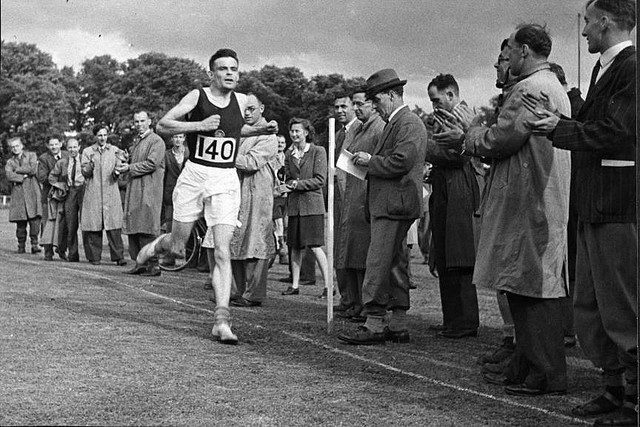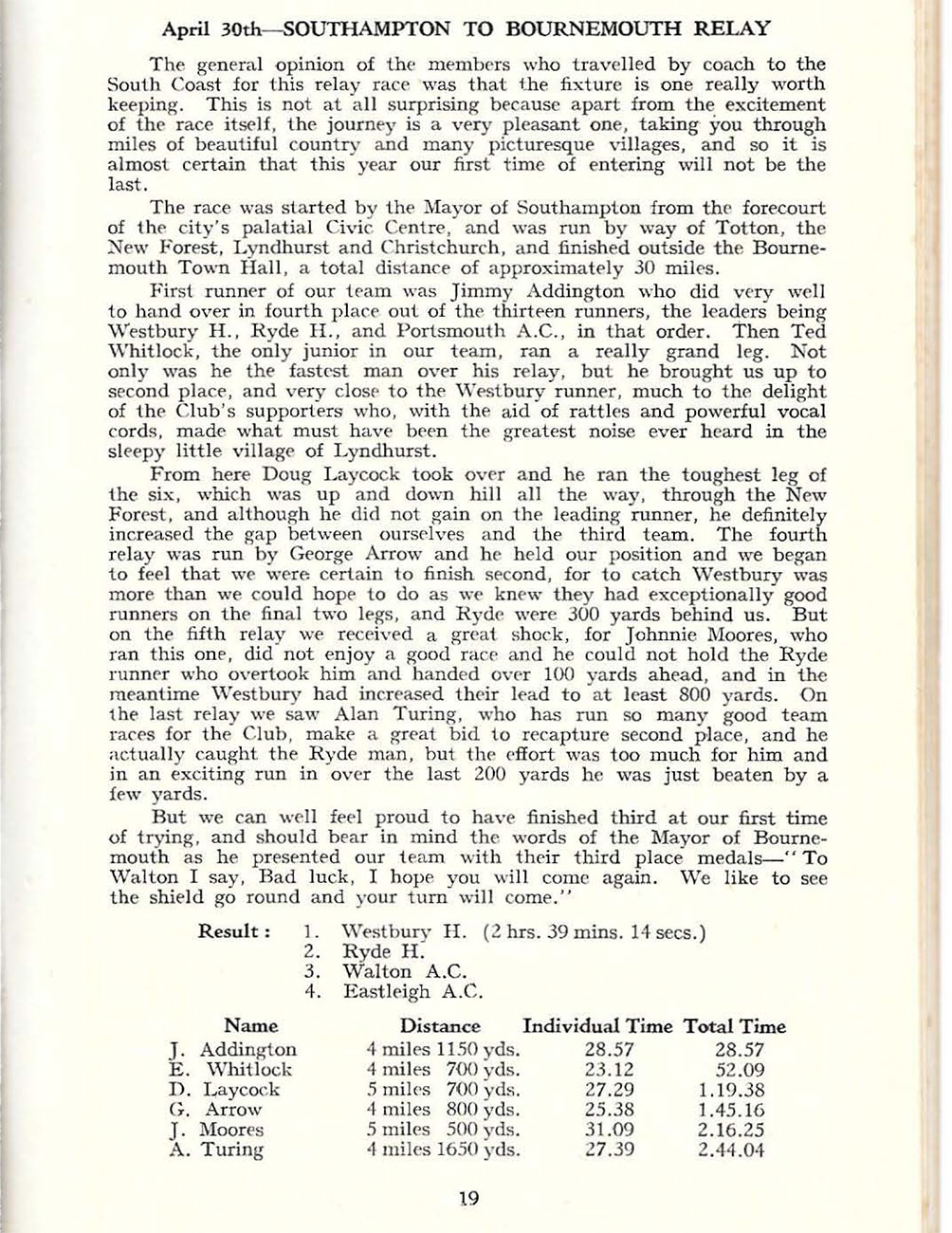In the Oscar-nominated film “The Imitation Game,” mathematician Alan Turing turns to running to relieve the stress of trying to crack the Nazis’ supposedly unbreakable Enigma code. Running was a hobby he enjoyed throughout his too-short life.
And much like his legendary work in the fields of math and computer science, he was a brilliant runner. According to the Alan Turing Internet Scrapbook, Turing’s best marathon time was 2 hours, 46 minutes, 3 seconds, which was only 11 minutes slower than the winner in the 1948 Olympic Games. In fact, in a 1948 cross-country race, he beat future Olympic silver-medalist marathoner Tom Richards.
For someone who is credited with not only saving the world during World War II by cracking an uncrackable code but also with creating the forefather of the modern-day computer, Turing saw running as a necessary outlet.
“I asked him one day why he punished himself so much in training,” recalled J. F. ‘Peter’ Hardin, who ran with Turing at the Walton Athletic Club. “He told me, ‘I have such a stressful job that the only way I can get it out of my mind is by running hard.’”
In one of his meets with Walton Athletic Club, Turing actually competed against future Canadian marathon legend and Growing Bolder friend Ed Whitlock. Today, the 83-year-old Whitlock holds many world records, including being the first person over 70 to run a marathon in under 3 hours.
But when he was just 18 years old, he competed at the same meet as Turing, who was 37 at the time. In fact, Whitlock still has the write-up of it from the Walton Athletic Club gazette, and he recently sent it to our friend Ken Stone at MastersTrack.com, who kindly gave us permission to re-post it here on GrowingBolder.com:
“I am probably one of just a few still alive that have any association with his running side,” Whitlock told MastersTrack.com. “I was called Ted in those days as that was the diminutive for Edward in England. I ran in several events with Alan, but to my recollection never ran against him.”
Whitlock and the rest of the world, of course, had no idea what Turing had done during World War II. In an operation that was kept secret for decades, Turing and his team cracked the German code and shortened the length of the war by an estimated two years, saving millions of lives in the process. And when it was all over, he went back to being a university scholar who ran as a hobby.
Turing would die just five years after that 1949 meet. In 1952, he was convicted of homosexual acts and ordered to either go to prison or undergo hormonal injections to “cure” his homosexuality. He chose the drugs, opting to try to keep up with his pioneering work. But the drugs were too much to endure and in 1954, he committed suicide. In 2013, Queen Elizabeth II granted him a posthumous pardon.
“In my innocence had no idea he was homosexual or that he had worked at Bletchley Park (where the code-breaking team worked during WWII). I had emigrated to Canada before he died,” Whitlock says.
Benedict Cumberbatch, who plays Turing in “The Imitation Game,” told NPR he thinks one of the most damaging side effects of the drugs was that they robbed Turing of his athletic ability.
“The estrogen injections not only corrupted his mind but started to eat away at his body. He lost this athletic body, he lost a mind that was so attuned with the one thing that he had left to love and that was his work. That was the undoing of his strength and his will to live,” Cumberbatch told Fresh Air.
Whitlock, thankfully, has gone on to enjoy a long and illustrious running career. In our most recent conversation with him, we discussed his latest world record — smashing the Toronto Marathon record by nearly 16 minutes! And it was a feat he accomplished after coming back from a serious injury.
Listen and get his advice for coming back from an injury at any age, but especially after the age of 80. Plus, the man who has been studied by gerontologists because of his athletic achievements answers the question whether he thinks he’s a genetic freak of nature or whether his success is built upon his refusal to ever give up.



